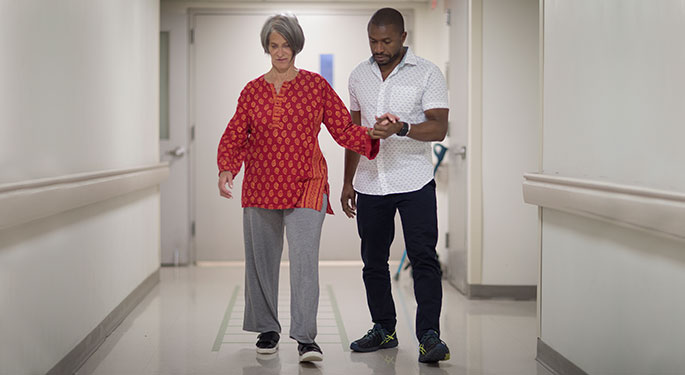Enabling Clients Through Social Support within Cardiopulmonary Recovery Programs.
Wiki Article
Cardiopulmonary rehab programs are created to help individuals with heart and pulmonary issues enhance their well-being and quality of life. These programs commonly include physical exercise, instruction about heart and lung well-being, and support for making lifestyle choices changes. Nonetheless, one important aspect that is sometimes overlooked is the role of emotional support. Psychosocial support refers to the emotional and social assistance that patients receive during their recovery process. This support can empower individuals, enhance their self-esteem, and help them navigate the obstacles that arise with chronic health conditions.

Patients in cardiopulmonary rehabilitation frequently face various psychological and psychological challenges. Feelings of nervousness, depression, and loneliness can be prevalent. These emotions may stem from the stress of confronting with a significant health issue or the fear of future health issues. Psychosocial support can aid tackle these emotions by offering individuals with a secure space to talk about their worries and bond with others who comprehend what they are experiencing through. Group therapy meetings and individual counseling can be beneficial ways to promote this assistance. By engaging with experts and others, patients can learn adaptation strategies and find support from peers who share similar experiences.
Incorporating emotional support into cardiopulmonary rehab programs can lead to better medical outcomes for patients. Research click here for info indicate that when patients receive emotional assistance, they are more apt to stick to their rehabilitation plans, follow to medication, and implement necessary lifestyle changes. This engagement can lead to enhanced physical well-being, lessened hospitalizations, and an entire better standard of living. Support groups can foster inspiration and responsibility, helping individuals remain dedicated to their recovery objectives. This collaborative method emphasizes the importance of considering both bodily and psychological well-being in the rehabilitation journey.
Educators and healthcare professionals play a vital part in offering emotional support within these initiatives. They can assist patients understand the importance of mental health in their recovery journey. By creating an atmosphere of empathy and support, medical providers can promote open dialogue about feelings and concerns. Training staff in communication Continue Reading skills and emotional support strategies can enhance the general individual journey. Moreover, incorporating instruction about stress management, relaxation techniques, and healthy coping strategies can empower patients to take an active role in their mental health.
In conclusion, empowering individuals through emotional support in cardiopulmonary rehabilitation initiatives is crucial for encouraging comprehensive recovery. By recognizing the psychological and community dimensions of recovery, medical professionals can establish a more supportive atmosphere that meets the requirements of the entire individual. Individuals who receive this comprehensive care are more likely to attain their health objectives and enhance their total quality of living. The inclusion of emotional assistance into rehabilitation programs not only improves the patient experience but also contributes to improved sustained health outcomes.